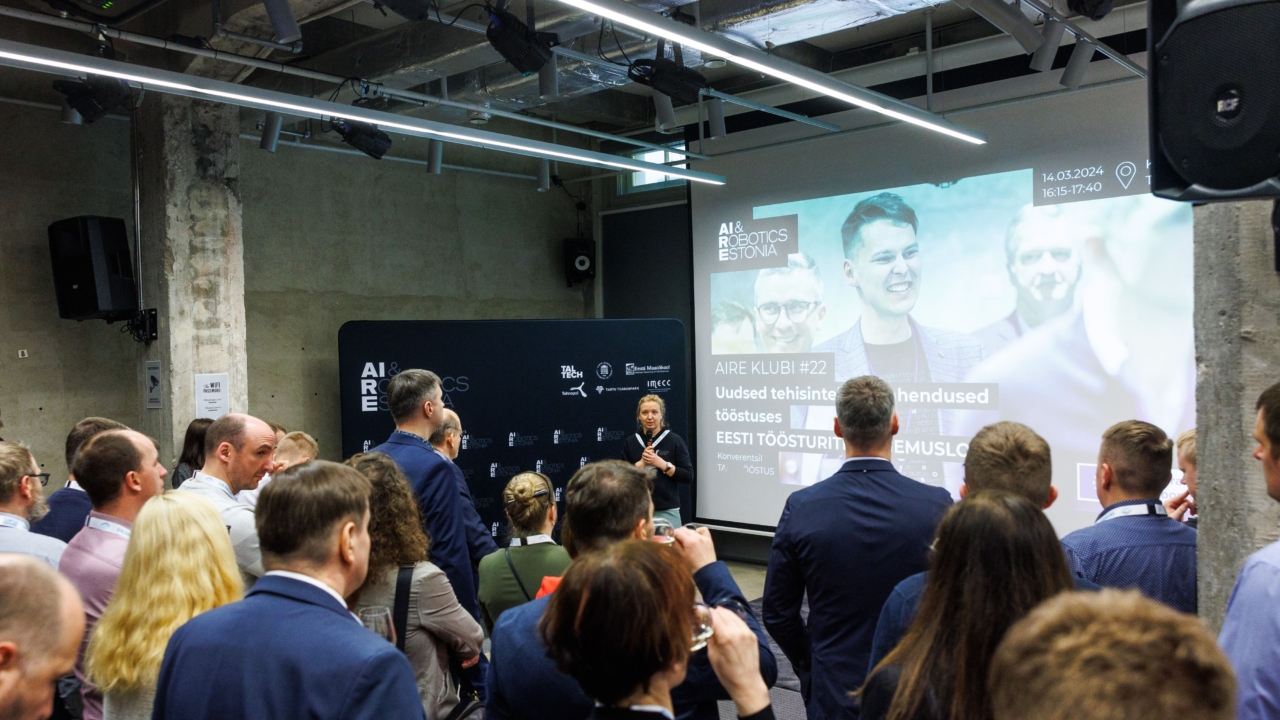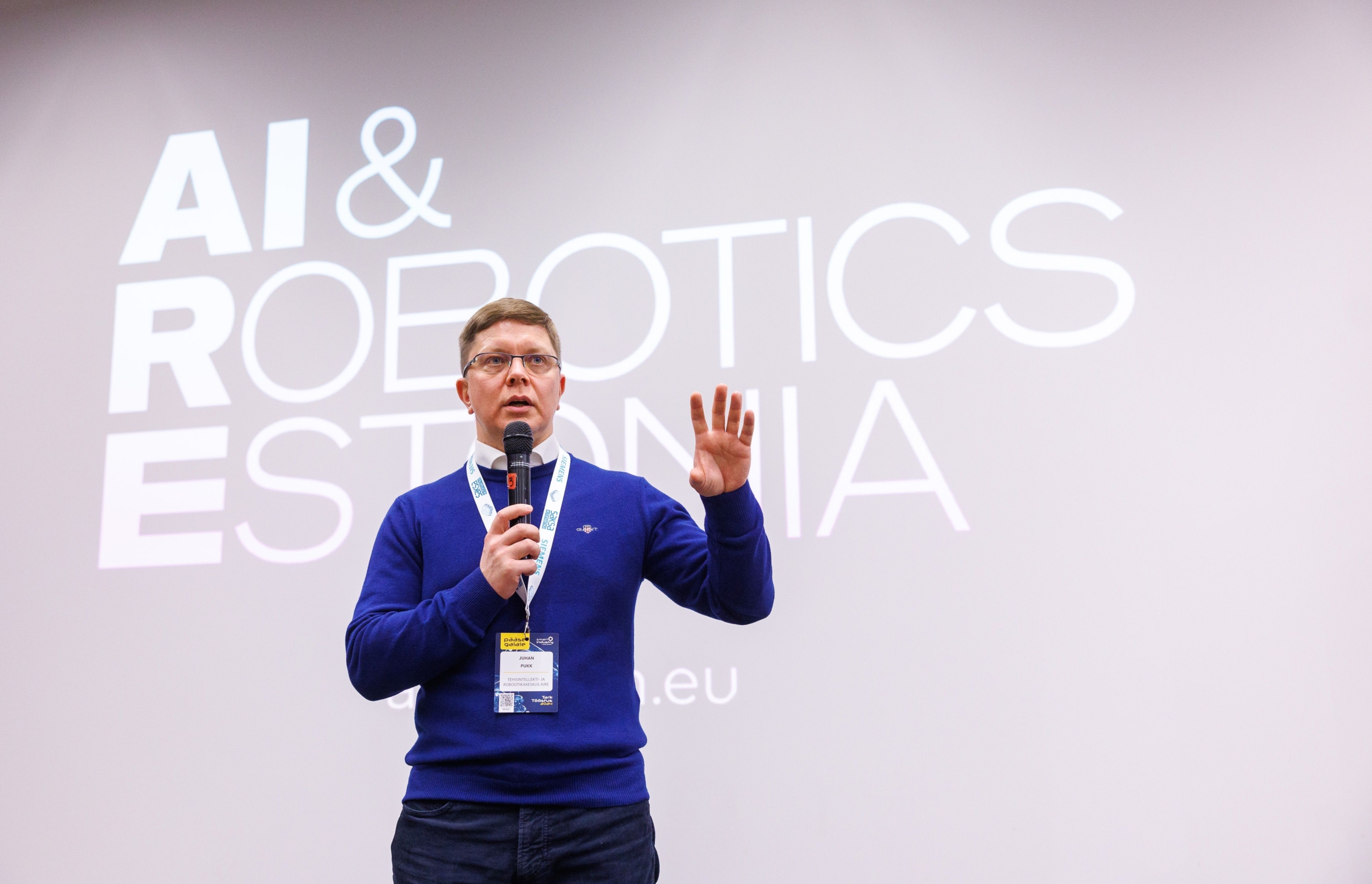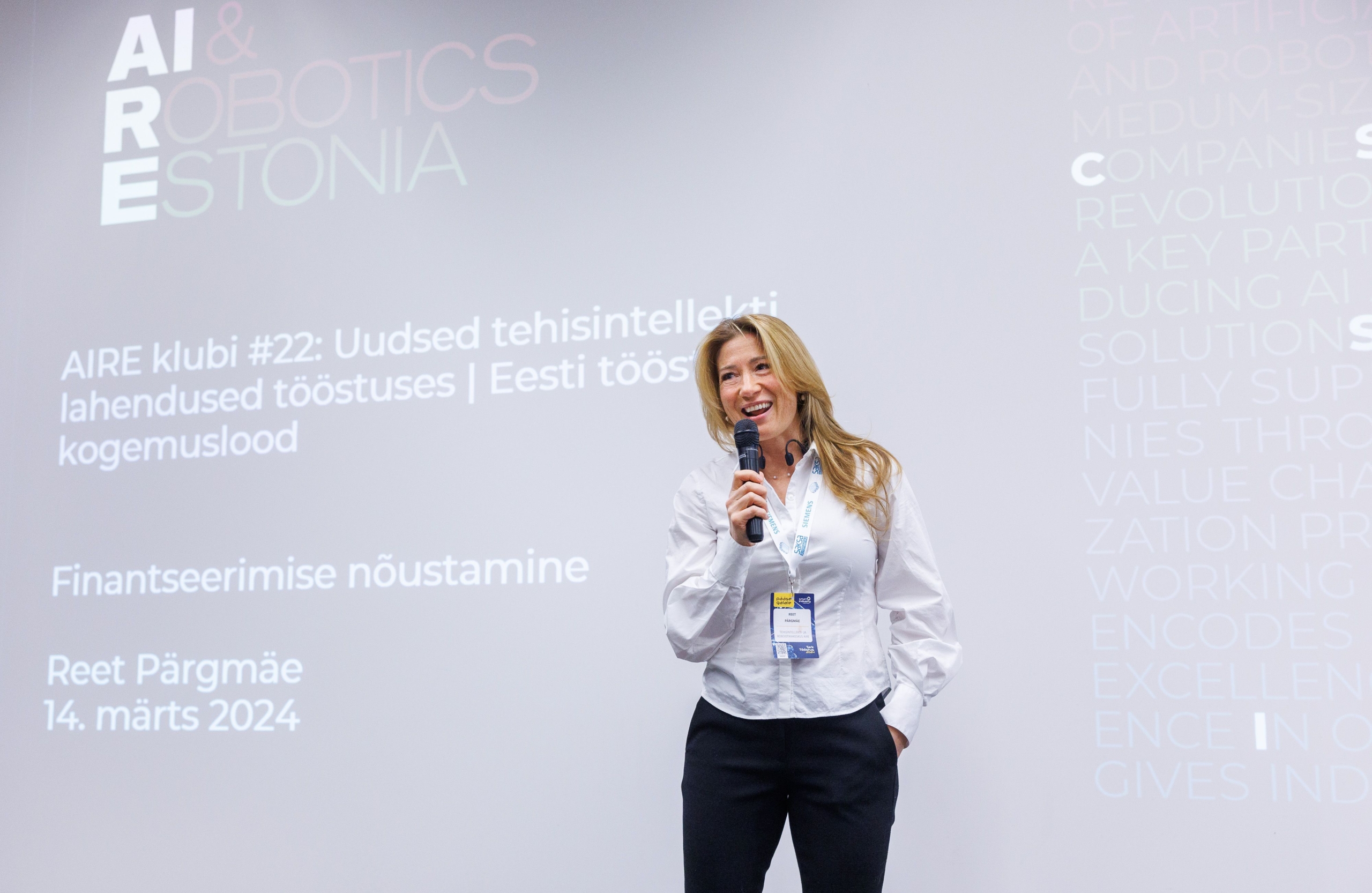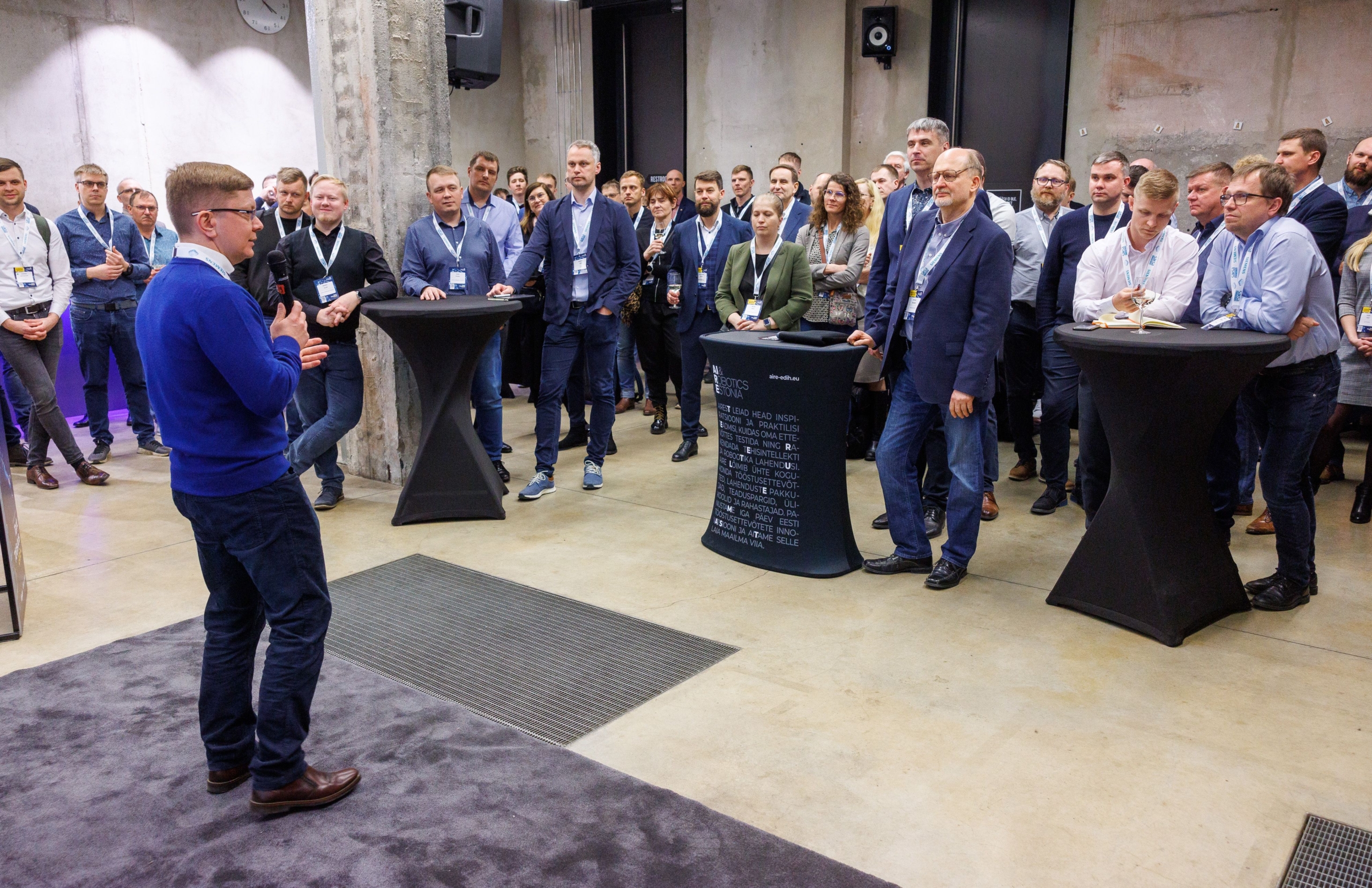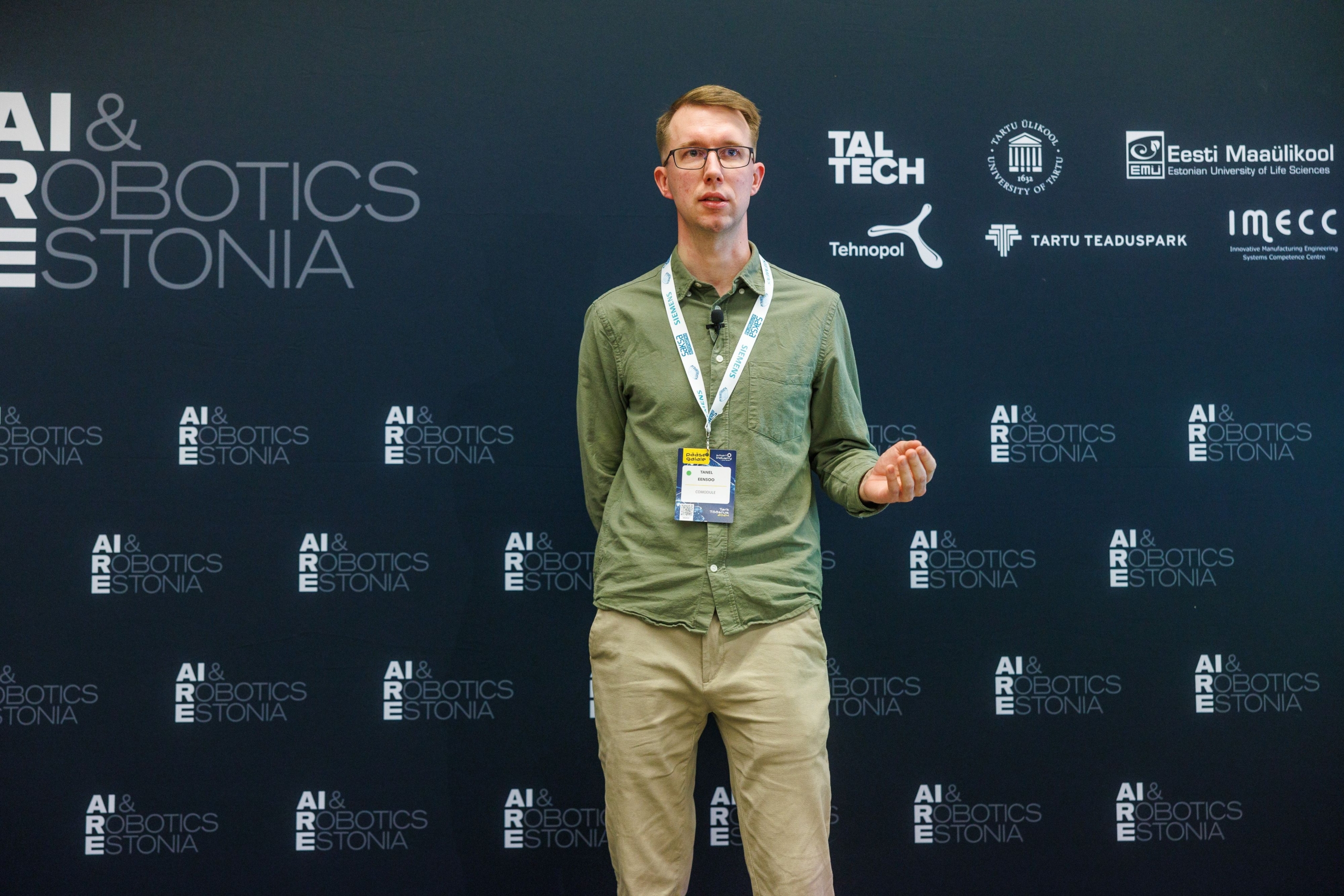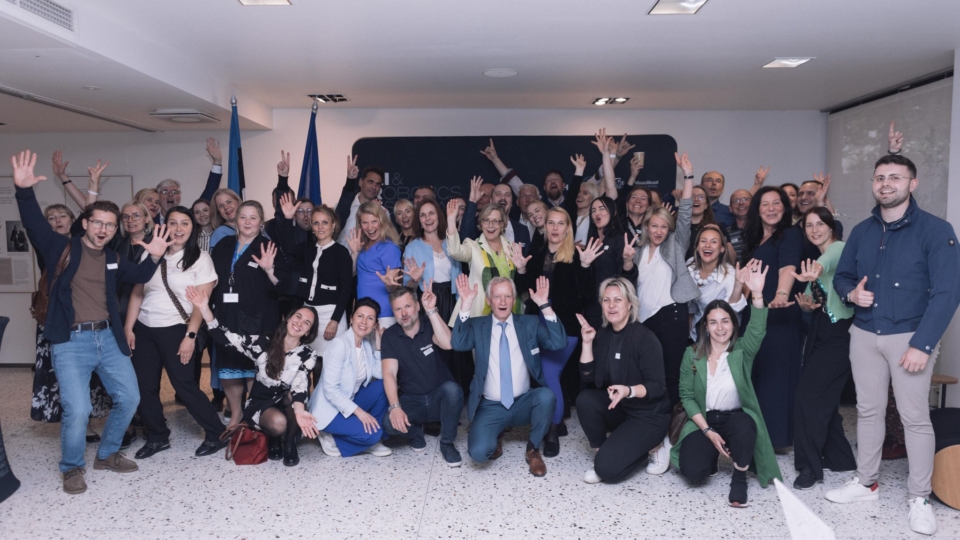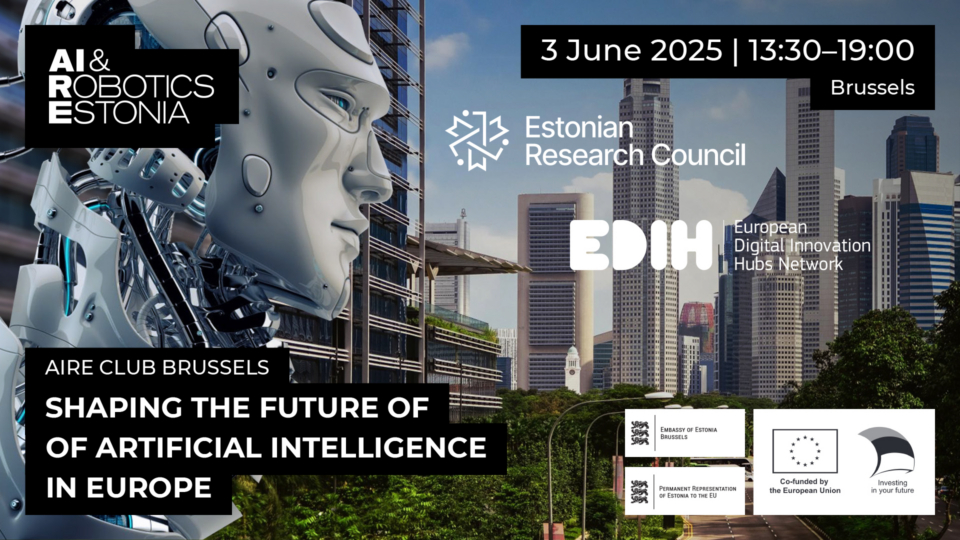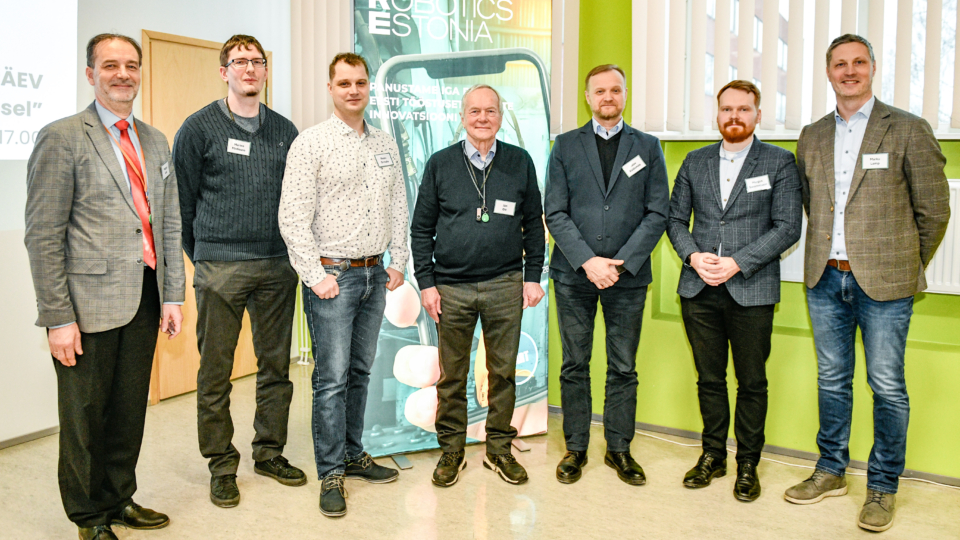AI & Robotics Estonia activities empower industrial companies. Smart Industry 2024
This year’s Smart Industry conference offered dozens of exciting topics for listening. In addition to presentations, there were panel discussions and workshops. The AI & Robotics Estonia showcased demo projects in its workshop, where companies saved on manpower using machine reading, improved internal logistics, and increased the accuracy of product quality control.
The Smart Industry 2024 event in mid-March attracted a record number of participants. Keywords resonating in the presentations included: digitalization, innovation, cybersecurity, robotics, finding new markets, and more. In AIRE’s workshop, companies shared their experiences with demo projects.
One of the speakers was Viljar Valdek from Valdek AS, who talked about how they improved internal logistics using machine learning. “Paperless production is one of our main goals, that is, how the digital world and the physical world would be integrated. Today, we have digital production management and monitoring,” he said. Another speaker, Tanel Eensoo, the team leader of factory industrial engineers at Kõu Mobility, described how they transitioned product quality control from manual labor to machine control.
Juhan Pukk, a member of AIRE’s advisory board and partner at Flowit, said during the workshop that companies have gained invaluable experience from demo projects, showing what can be achieved with machine learning. “There is no other project like this in Estonia,” Pukk emphasized.
Reet Pärgmäe, Head of Public Funding Services at AIRE, invited companies to financial consulting and digital maturity assessment to receive feedback on their current status. “During the assessment, initial recommendations are also provided on where to start. I am pleased to note that every year, the number of companies coming for assessment increases,” she said.
Minister’s Economic Plans
Tiit Riisalo, Minister of Economic Affairs and Communications, spoke at the conference about the country’s developed economic plan and its goal: to double Estonia’s economy by 2035. One function of the economic plan is to align state decision-making with the goal of ensuring the competitiveness of the Estonian economy. “With this document, we want to ensure that the issue of competitiveness is raised more and more, so that this topic becomes even more serious. We still hope that by adjusting taxes or making some changes somewhere, we can change the economy. However, in the end, playing with taxes is regulatory in nature, but if we want to pay salaries to teachers, police officers, firefighters, then there is no other choice but to grow the Estonian economy. There is no other way, and we have to keep talking about it more and more to raise awareness,” Riisalo affirmed.
Riisalo said the economic plan has several starting points: it should be easy to be an entrepreneur in Estonia, but the usual practice does not always follow sensible solutions. “As for simplifying the legal framework, it is not so. If you look at how the volume of reporting has increased, although the aim was to achieve less reporting,” he said. Speaking about entrepreneurship, the minister said that the question of qualified labor force has been sharply raised, with two perspectives: as a quicker solution, discussions have been initiated with coalition partners to make it easier to bring necessary labor force to Estonia. However, reliance solely on foreign labor force is not sustainable. “In our country, technical education provided by higher and vocational education institutions must meet the requirements of today, what the entrepreneur needs. At the same time, it is clear to everyone that vocational education in Estonia needs serious reform,” the minister acknowledged.
Empowering New Directions
Andi Hektor, Chief Strategy Officer of GScan Ltd, speaking about smart industry, said that although there are enough people in Estonia who are not afraid to start from scratch, that alone is not enough. It is necessary to have the right environment and support from the public sector. “When talking about the start-up and industrial side, investor support is very important, meaning the investor must be willing to finance very complex ideas. They must have the desire to delve into these topics. As a third party, I would mention the existence of an ecosystem, in other words, there is a need for wide support for doing complex things,” explained Hektor.
“When it comes to deep technology development, universities, higher education, and the research sector play a very important role,” Hektor added. GScan is a good example of collaboration between researchers and universities, as the company participates, through AIRE funding, in a joint project with researchers from the University of Tartu titled ” Validating of artificial intelligence-based concept for decoding low-power signals.” According to Hektor, banks’ assistance and other state support measures are needed in Estonia to further support the adoption and development of new technologies.
